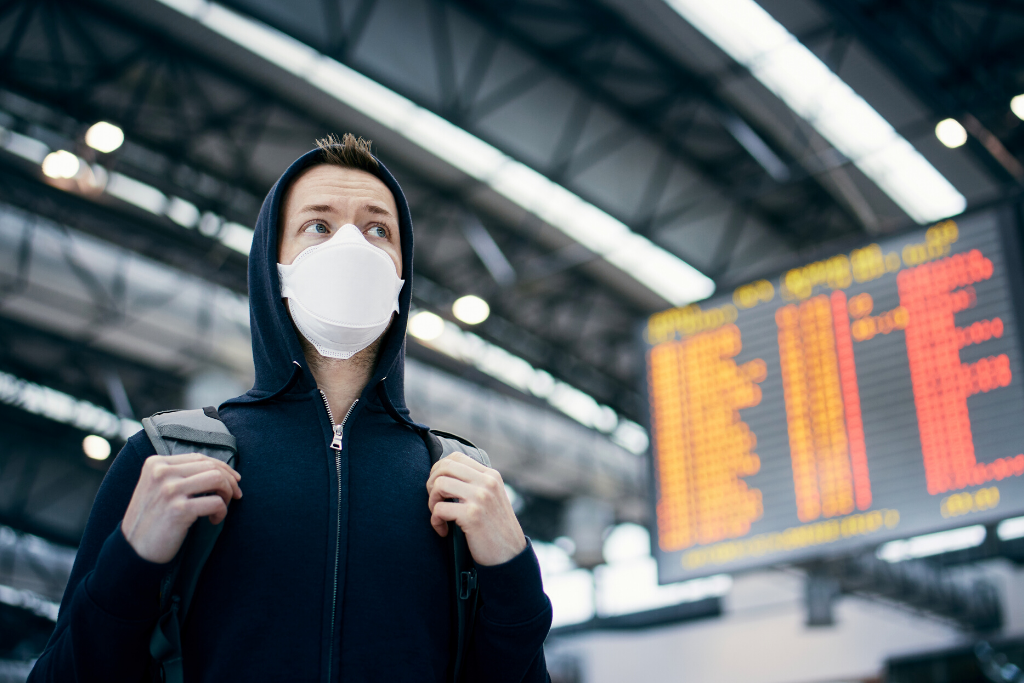EVENT SAFETY AND SECURITY IN THE CONTEXT OF COVID-19
Over the past several weeks and months, the German federal and state governments have responded to the spread of the COVID-19 virus with a comprehensive package of protective measures. Decision-makers have always emphasized that the scope and design of the protective measures must be judiciously adapted to the changing circumstances based on a reasonable understanding of what is appropriate. This careful approach must also be applied when taking strategic steps towards a phased return to the staging of events.
The following recommendations for actions and decisions regarding the phased staging of events in the future show that it is possible to reduce the risks for everyone involved in an event. These recommendations in the form of a step-by-step assessment should be used to evaluate individual event-related risks that evolve with the development of the pandemic and to devise corresponding measures for risk containment and mitigation and thus to ensure the safety and security of all event visitors. It is strongly advised that these recommendations be used as a binding checklist for event organizers. This will enable event planners, organizations, authorities and participants to work on the assumption of the best possible, verifiable situation with regard to the health and safety of everyone involved.

The event industry is well aware of its enormous responsibility vis-à-vis visitors, customers and partners. The safety and security of visitors, as well as occupational safety and health, have played key roles in the planning and staging of events for many years. Thus, the benchmark for this recommendation is not the fulfilment, but rather the over fulfillment of official and institutional requirements.
The following recommendations were drafted by an interdisciplinary task force that unites the expertise of event technology managers, technical directors, trade show and stage construction specialists, experts in event safety and security, gastronomy/catering and logistics, venue operators and representatives of other professional groups such as event and artists’ agencies. The recommendations are supported and endorsed by the following institutions and associations: DPVT GmbH (German Inspection Institute for Entertainment Technology), FAMAB Kommunikationsverband e.V. (FAMAB Communications Association), International Live Events Association (ILEA), Interessengemeinschaft der selbständigen DienstleisterInnen in der Veranstaltungswirtschaft e.V. (ISDV) (Interest Group for Independent Service Providers in the Event Industry, IHK Hessen (Hessian Chamber of Industry and Commerce), THM Mittelhessen (University of Applied Sciences of Middle Hesse), TU Chemnitz (Chemnitz University of Technology), visitBerlin and Verband für Medien- und Veranstaltungstechnik (VPLT) (Association for Media and Event Technology).
Medical and scientific advisory services were provided by Dr. Klaus-Peter Hunfeld, MPH, specialist in laboratory medicine, medical microbiology, virology, epidemiology of infectious diseases, hospital hygiene, Frankfurt am Main, Dr. Frank-Albert Pitten, specialist for hygiene and environmental medicine, Institut für Krankenhaushygiene und Infektionskontrolle (IKI) (Institute for Hospital Hygiene and Infection Control), Giessen, and Dr. Walter Popp, specialist for internal medicine, occupational medicine, hygiene, medical quality management, antibiotic stewardship (ABS) expert at Deutsche Gesellschaft für Krankenhaushygiene [DGKH) (German Society for Hospital Hygiene), Dortmund.
RECOMMENDATIONS ON PROTECTION GUIDELINES
The following recommendations are in line with the „Key Planning Recommendations for Mass Gatherings in the Context of COVID-19“ of the WHO (last revised: 19 March 2020), the Standards for Occupational Safety and Health SARS-CoV-2 of the German Federal Ministry of Labor and Social Affairs, and the generally applicable guidelines and definitions of the respective building codes of the German federal states, in particular the ordinances on places of assembly, the building codes of the federal states and the guidelines on temporary structures.

PROTECTION GUIDELINE A
Events can fundamentally be carried out within the framework of the aforementioned established rules if it can be ensured that during the entire duration of an event (construction, implementation, breakdown) all persons involved and present (event visitors as well as all service providers, employees and artists employed within the framework of the event) are verifiably not infected with COVID-19 and not contagious or have already acquired immunity.
For all events, a manipulation-proof list of participants (“participant management” and “employee accreditation”) including the recording of the attendance and working hours must be maintained. Seamless tracking in compliance with data protection and privacy regulations will be ensured and provided to the relevant authorities if required. Furthermore, the use of a tracing app is explicitly recommended. In addition to this, the valid and recognized hygiene regulations related to COVID-19 published by the Robert Koch Institute (RKI) that apply at the time of the event shall continue to apply.

PROTECTION GUIDELINE B
If the provisions of Protective Guideline A cannot be ensured, events can be held if supplementary regulations on compliance with minimum distances and with additional hygiene requirements are followed. This requires a documented risk analysis to be carried out by the organizer, which must be based on a general hygiene concept to be developed in cooperation with an independent institute.
PROTECTION GUIDELINE C
Should it not be feasible to maintain minimum distances in individual cases or in individual areas of the event venue, more stringent hygiene conditions and measures shall apply. These must be explicitly described in the risk analysis and approved by the authorities. The aforementioned protection guidelines will be additionally regulated based on a step-by-step master plan for staging events for the analysis of the maximum number of persons permitted at events. This will facilitate flexible adaptation to the respective regional situations (see appendix).
The specification of the steps will be undertaken in 4 phases; the severity level will be determined on the base reproduction rate (R0), for example, after prior coordination with the relevant authorities. The gradation will likewise take into account the respective incidence rate in the area of origin of the visitors (e.g. the national incidence rate will be used for national event visitors and the regional incidence rate for regional event visitors.














